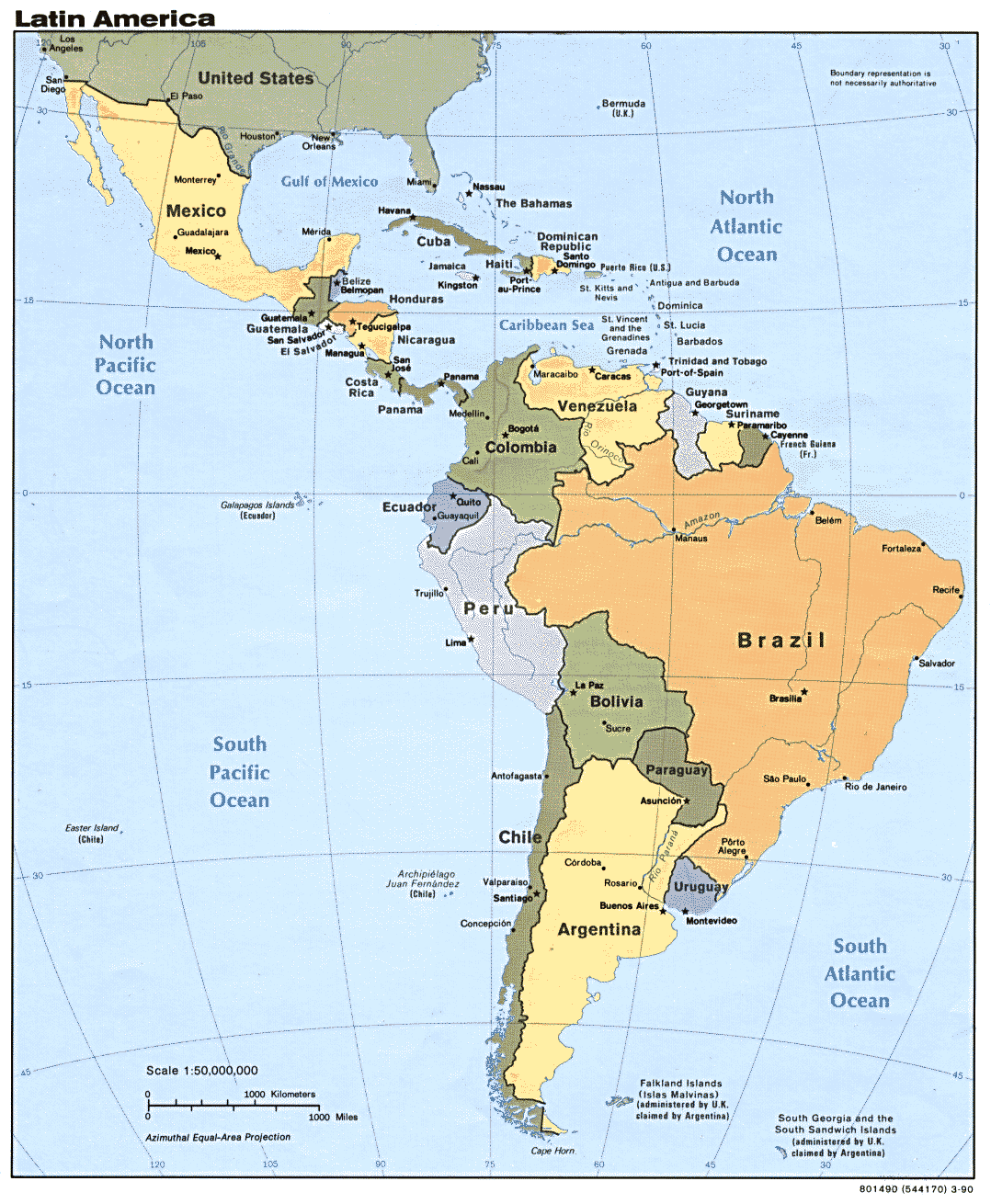The past 48 hours have marked a major change in U.S. politics with the Democrats taking control of Congress for the first time since 1994. Speculation has run rampant on what the Democrats will do and if President Bush will work with Congress or if divisiveness is going to continue. Part of the speculation revolves around possible changes to U.S. foreign policy; in particular the conflict in Iraq. Yet it is unknown what will happen to U.S. policy towards Latin America and the Caribbean. Let’s take a brief gaze into the crystal ball at the different issues surrounding policy with the Americas and how they may change between now and the 2008 presidential election:
Immigration
The need for immigration reform was placed on the back burner by both Democrats and Republicans in the weeks leading to Tuesday’s elections but that will certainly not be the case once the new Congress is sworn in this January. As the head of one pro-immigrant group observed “our chances in the next Congress are better than they have ever been. The public is still frustrated and upset about the issue, and wants its leaders to lead.” The new Congress will certainly shy away from strong anti-immigration measures like those proposed and passed by the House of Representatives. Keep in mind, however, that Democrats will support moderate measures on immigration such as the bill passed by the Senate last month that proposes building a 700-mmile fence along the U.S.’ southern border. For instance, one of President Bush’s ideas- the creation of a guest-worker program- may receive sufficient bipartisan support to be passed.
Anti-immigrant supporters- as shown in this article for conservative magazine National Review- are in panic mode and expecting the worse (amnesty and open borders: oh no!) but the reality should not be as dire as they anticipate. Perhaps anti-immigrant factions will aim at pursuing their agenda on the local and state level where four measures against immigrants were passed by Arizonan voters on Tuesday.
Diplomacy
Diplomacy in the Americas has been dominated by the playground antics between the Bush administration and Venezuelan leader Hugo Chavez. Chavez- who was giddy at the Republicans’ massive loss in the midterm elections- will surely not diminish his inflammatory anti-U.S. rhetoric. Republicans have been hysterically preoccupied with Chavez and his impact on Latin America and worried over leftist leaders in the region. Democrats are also concerned with Chavez and are expected to put a strong front against him though not as much as a Republican-led legislature. Meanwhile, a Democrat-controlled Congress would certainly warm to moderate leftist heads of state like Chile’s Michelle Bachelet, Uruguay’s Tabare Vasquez, and Lula from Brazil. This may mean changes in foreign aid and U.S. ambassadorships abroad.
Free Trade
This may be the biggest area of change with a Democrat-led congress. Democrats are displeased with the negative aspects of free trade in that jobs are leaving from the U.S. and going abroad as well as disproportionate trade deficits with countries like Japan and China. Some have speculated that Congress will start a push for economic isolationism and away from unilateral free trade deals with Latin American countries. The futures of recently-created free trade packages with areas like Central America, the Dominican Republic, and Colombia now hang in the balance though the rest of the Caribbean may get a boost in trade from a strengthened Congressional Black Caucus.
Anything else?
Most Democrats and Republicans agree on a hard stance against the Castro regime in Cuba. Hence, it would be safe to say that the embargo on the island will keep its current course. As we mentioned in a previous post on Colombia, Marcela Sanchez described the pluses and minuses of billions of dollars of aid to combat the drug trade in Colombia. Democrats have emphasized the minuses over the past few years and will look towards placing more accountability on the Colombian government and shifting some money towards economic and social development.
Most Latin Americans, while gleeful at the changes in congress, anticipate little to be changed in terms of U.S. relations with the region. If that pessimism will occur remains to be seen, however, and the next tow years could be pivotal in creating significant change in the hemisphere.
So what do you think? Is change in policy towards the Americas coming up or will there be more of the same? Will Latin America continue being a secondary concern in comparison to other regions? Have any disagreement with what was mentioned above? Please feel free to comment and tell us your opinion!
Links- New York Daily News, Foreign Policy Passport (blog), Yahoo! News, TPM Café, Reuters, The Latin Americanist (blog), National Review Online, Houston Chronicle, Al Jazeera Magazine, nationalinterest.org, USA TODAY, Miami Herald, Foreign Policy in Focus, Washington Post, International Herald Tribune, Vivirlatino (blog)
Tags- Latin America,Bush administration, Congress, international politics, immigration, free trade
 With the weekend upon us we have a contest for you; we’ve made a deal with Chonta Records in order to promote the “Encuentro of Colombian Musicians” concert at
With the weekend upon us we have a contest for you; we’ve made a deal with Chonta Records in order to promote the “Encuentro of Colombian Musicians” concert at 



















